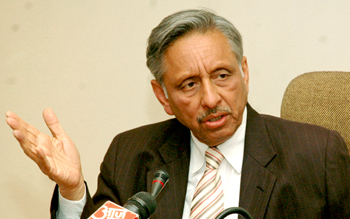
Mani Shankar Aiyar asked, "India is a democracy. We set very high standards when it comes to human rights. Why are we then not abolishing the death sentence? What benefit are we getting from it?"
"The day when Yakub's death sentence was confirmed by the Supreme Court, the same day a terrorist attack took place in Gurdaspur. So, there is no terrorist who will leave violence after seeing Yakub's hanging. There is no connection between these two things. Therefore, we should not do the same evil thing that the terrorists do," he added.
He also insisted that the people who died in the 1993 Mumbai blasts do have human rights.
"The victims have human rights. We say that the terrorists should be caught and given punishment. But there is no justice if you hang one person and leave the other 10."
Yakub Memon was hanged at the Nagpur Central jail this morning after his second mercy plea before President Pranab Mukherjee was rejected late last night.
In an unprecedented move, a three-judge bench of the Supreme Court presided over a fresh hearing of the case throughout the intervening night of Wednesday and Thursday before dismissing the final appeal for mercy by Yakub, the only person to be sentenced to death for the series of bombings in Mumbai.
Memon was convicted for being the "driving spirit" behind the blasts that killed at least 257 people at separate landmarks in the financial capital, including the Bombay Stock Exchange and two crowded markets.





Comments
Add new comment